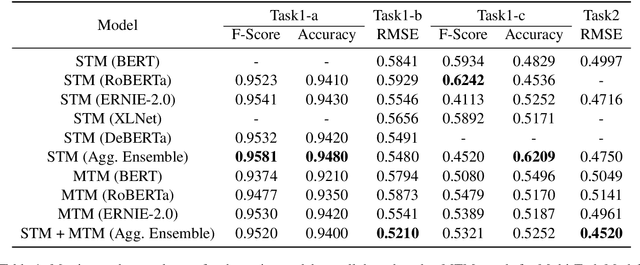Humor@IITK at SemEval-2021 Task 7: Large Language Models for Quantifying Humor and Offensiveness
Paper and Code
Apr 02, 2021



Humor and Offense are highly subjective due to multiple word senses, cultural knowledge, and pragmatic competence. Hence, accurately detecting humorous and offensive texts has several compelling use cases in Recommendation Systems and Personalized Content Moderation. However, due to the lack of an extensive labeled dataset, most prior works in this domain haven't explored large neural models for subjective humor understanding. This paper explores whether large neural models and their ensembles can capture the intricacies associated with humor/offense detection and rating. Our experiments on the SemEval-2021 Task 7: HaHackathon show that we can develop reasonable humor and offense detection systems with such models. Our models are ranked third in subtask 1b and consistently ranked around the top 33% of the leaderboard for the remaining subtasks.
 Add to Chrome
Add to Chrome Add to Firefox
Add to Firefox Add to Edge
Add to Edge